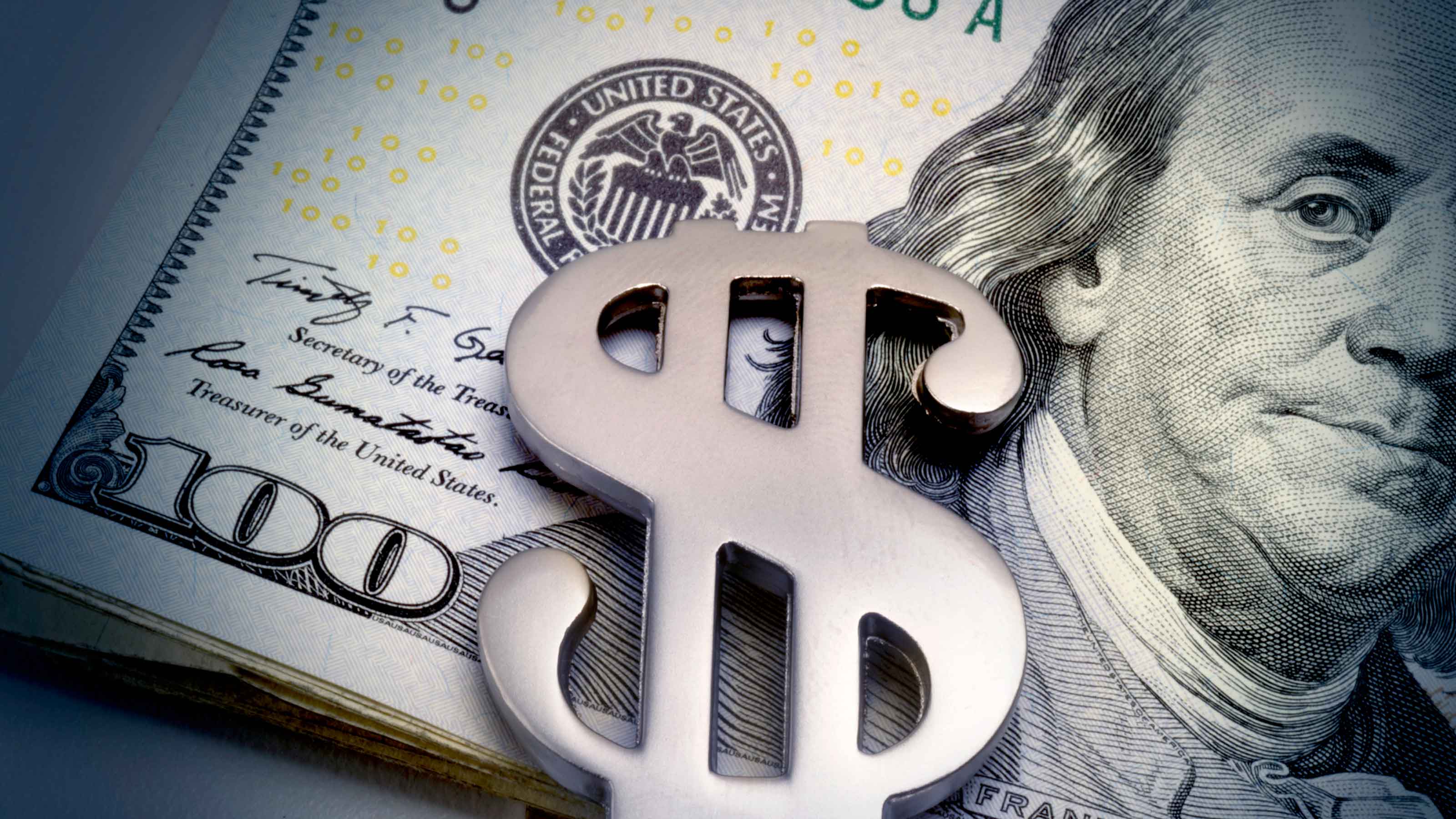Profit and prosper with the best of Kiplinger's advice on investing, taxes, retirement, personal finance and much more. Delivered daily. Enter your email in the box and click Sign Me Up.
You are now subscribed
Your newsletter sign-up was successful
Want to add more newsletters?

Delivered daily
Kiplinger Today
Profit and prosper with the best of Kiplinger's advice on investing, taxes, retirement, personal finance and much more delivered daily. Smart money moves start here.

Sent five days a week
Kiplinger A Step Ahead
Get practical help to make better financial decisions in your everyday life, from spending to savings on top deals.

Delivered daily
Kiplinger Closing Bell
Get today's biggest financial and investing headlines delivered to your inbox every day the U.S. stock market is open.

Sent twice a week
Kiplinger Adviser Intel
Financial pros across the country share best practices and fresh tactics to preserve and grow your wealth.

Delivered weekly
Kiplinger Tax Tips
Trim your federal and state tax bills with practical tax-planning and tax-cutting strategies.

Sent twice a week
Kiplinger Retirement Tips
Your twice-a-week guide to planning and enjoying a financially secure and richly rewarding retirement

Sent bimonthly.
Kiplinger Adviser Angle
Insights for advisers, wealth managers and other financial professionals.

Sent twice a week
Kiplinger Investing Weekly
Your twice-a-week roundup of promising stocks, funds, companies and industries you should consider, ones you should avoid, and why.

Sent weekly for six weeks
Kiplinger Invest for Retirement
Your step-by-step six-part series on how to invest for retirement, from devising a successful strategy to exactly which investments to choose.
Have we got a deal for you! How about an investment that’s less volatile than the U.S. stock market, has returned an annualized 12% over the past ten years and is fairly cheap to own? Now, when you hear what it is, you may react viscerally and say, No way -- kind of like when you first tried stewed spinach, even though you knew it was good for you. So brace yourself.
The investment is one that owns debt of developing countries. That means government bonds from such places as Russia, Turkey, Indonesia and Mexico. As a class of investments, emerging-markets-debt funds have had a great run over the past dozen years, as many developing nations have improved their fiscal situations and instituted the rule of law in economic matters.
The specific fund I’m advocating is Fidelity New Markets Income (symbol FNMIX), managed by John Carlson. There are other good funds in this category, including some with better long-term records. But New Markets Income’s relatively low volatility, combined with its strong return, absence of a sales charge and relatively low annual expense ratio (0.95%), put the fund at the top of my list.
From just $107.88 $24.99 for Kiplinger Personal Finance
Become a smarter, better informed investor. Subscribe from just $107.88 $24.99, plus get up to 4 Special Issues

Sign up for Kiplinger’s Free Newsletters
Profit and prosper with the best of expert advice on investing, taxes, retirement, personal finance and more - straight to your e-mail.
Profit and prosper with the best of expert advice - straight to your e-mail.
Carlson acknowledges that many bond investors are apprehensive about putting money into a fund such as his but suggests that their fears may be misplaced. Such concerns were “well justified when I got into this 20 years ago,” he says. But the lack of fiscal discipline and financial regulation that used to mark those countries is now more of a problem in the U.S., Japan and Western Europe, he says.
The emerging nations whose bonds make up the bulk of the Fidelity fund have developed independent central banks and strong fiscal policies. They have experienced a “rapid improvement” in their credit standing, in part driven by the countries’ need to raise money at reasonable costs through government bonds. About 60% of the fund’s holdings are “investment grade” -- that is, rated triple-B or higher. Plus, virtually all of New Markets Income’s assets are in dollar-denominated bonds. That means currency risk is not an issue (U.S.-based investors are hurt if they have money in bonds denominated in, say, rubles and the ruble weakens against the dollar).
Carlson’s favorite country among those that are on the cusp of being moved up to investment-grade status is Indonesia. He says that most U.S. investors dismiss Indonesia as an “Islamic country somewhere out in the Pacific.” But, he says, the country is democratic, has relatively little debt and meets all of its energy needs through domestic production. It’s a tourist destination (think Bali) and has a solid manufacturing base as well. While international investment darling Brazil is the number-one country represented in New Markets Income, with 9% of assets, Indonesia bonds rank fifth, at 6%.
The fund’s volatility is relatively low. Over the past ten years, it was one-third less volatile than Standard & Poor’s 500-stock index. Of course, that is in part because New Markets Income is a bond fund, and generally, bonds are less volatile than stocks. “The dampening effect of emerging-markets bonds versus emerging-markets stocks is you’re getting paid that coupon” from the bonds, says Carlson. And having a high portion of the fund’s assets in investment-grade bonds also helps. Ironically, some investors shy away from emerging-markets bonds but embrace emerging-markets stocks, even though the returns of the bonds have rivaled those of stocks and have done so with much less volatility.
By sticking mainly to government debt, Carlson avoids corporate IOUs, which tend to be more volatile. And he doesn’t make big bets on the direction of interest rates in any of the countries where he invests. That can be a recipe for disaster if you make the wrong call.
The two top emerging-markets-debt funds over the past ten years come from GMO, both with astounding returns just shy of 15% a year. However, the funds’ managers invest in much riskier bonds and engage in other aggressive strategies. Moreover, one of the funds is closed to new investors, and the other requires a $10-million initial investment.
I’ll take Carlson’s less risky approach and bet that increasing stability in developing countries will continue to provide great returns -- no razzle-dazzle needed.
Profit and prosper with the best of Kiplinger's advice on investing, taxes, retirement, personal finance and much more. Delivered daily. Enter your email in the box and click Sign Me Up.

-
 How Much It Costs to Host a Super Bowl Party in 2026
How Much It Costs to Host a Super Bowl Party in 2026Hosting a Super Bowl party in 2026 could cost you. Here's a breakdown of food, drink and entertainment costs — plus ways to save.
-
 3 Reasons to Use a 5-Year CD As You Approach Retirement
3 Reasons to Use a 5-Year CD As You Approach RetirementA five-year CD can help you reach other milestones as you approach retirement.
-
 Your Adult Kids Are Doing Fine. Is It Time To Spend Some of Their Inheritance?
Your Adult Kids Are Doing Fine. Is It Time To Spend Some of Their Inheritance?If your kids are successful, do they need an inheritance? Ask yourself these four questions before passing down another dollar.
-
 White House Probes Tracking Tech That Monitors Workers’ Productivity: Kiplinger Economic Forecasts
White House Probes Tracking Tech That Monitors Workers’ Productivity: Kiplinger Economic ForecastsEconomic Forecasts White House probes tracking tech that monitors workers’ productivity: Kiplinger Economic Forecasts
-
 The 5 Best Actively Managed Fidelity Funds to Buy and Hold
The 5 Best Actively Managed Fidelity Funds to Buy and Holdmutual funds Sometimes it's best to leave the driving to the pros – and these actively managed Fidelity funds do just that, at low costs to boot.
-
 The 12 Best Bear Market ETFs to Buy Now
The 12 Best Bear Market ETFs to Buy NowETFs Investors who are fearful about the more uncertainty in the new year can find plenty of protection among these bear market ETFs.
-
 Investing in Emerging Markets Still Holds Promise
Investing in Emerging Markets Still Holds PromiseEmerging markets have been hit hard in recent years, but investors should consider their long runway for potential growth.
-
 Don't Give Up on the Eurozone
Don't Give Up on the Eurozonemutual funds As Europe’s economy (and stock markets) wobble, Janus Henderson European Focus Fund (HFETX) keeps its footing with a focus on large Europe-based multinationals.
-
 Stocks: Winners and Losers from the Strong Dollar
Stocks: Winners and Losers from the Strong DollarForeign Stocks & Emerging Markets The greenback’s rise may hurt companies with a global footprint, but benefit those that depend on imports.
-
 Vanguard Global ESG Select Stock Profits from ESG Leaders
Vanguard Global ESG Select Stock Profits from ESG Leadersmutual funds Vanguard Global ESG Select Stock (VEIGX) favors firms with high standards for their businesses.
-
 Kip ETF 20: What's In, What's Out and Why
Kip ETF 20: What's In, What's Out and WhyKip ETF 20 The broad market has taken a major hit so far in 2022, sparking some tactical changes to Kiplinger's lineup of the best low-cost ETFs.
